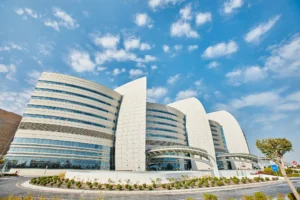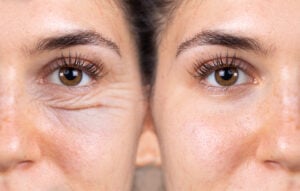Precision medicine is in essence the personalisation of healthcare. It is achieved using diagnostic testing based on a patient’s genetic content or molecular and cellular analysis together with an understanding of environmental and lifestyle factors. This helps medical professionals tailor a decision about the best treatment plan for the individual patient.
Development of Precision Medicine
Advances in genetics and the growing availability of health data, presented an opportunity to turn personalised patient care into a clinical reality. Precision medicine tools include things like molecular diagnostics, imaging, and analytics.
According to MarketersMedia, the global Precision Medicine Market is valued at USD 47.43 billion in 2019 and is projected to grow to USD 119.90 billion in 2025. This so-called “genomic revolution” is driven by the following:
- Advancements in genomic and proteomic sequencing that are bending the cost curve,
- A rise in consumer-focused healthcare, and
- Innovative healthcare IT technologies and connectivity.
MarketWatch also explains, ‘By identifying the optimal point of intervention for treatment, healthcare providers massively improve the quality of care. Additionally, these technologies offer optimised cost by effectively timing treatment intervention and eliminating the need for insufficient or excessive treatment regimens. Next generation sequencing has shifted the paradigm of genomics by accomplishing entire genome sequencing in a matter of hours.’
Benefits of Precision Medicine
Some of the benefits of precision medicine include:
- Targeted treatment options,
- Better clinical outcomes,
- Reduced side-effects, and
- More effective control for prevention of illnesses.
Genetic Testing
Genetic testing is often used to identify specific changes in genes, but can also be used to specifically determine the following:
- Diagnostic genetic testing: to determine if you have a genetic disease, for example Huntington’s or Cystic Fibrosis.
- Predictive genetic testing: checking increased risk and probability, for example for colorectal cancer and some types of breast cancer.
- Screening genetic tests: checking if more definitive testing is needed, e.g. new-born screening and non-invasive prenatal screening.
- Pharmacogenomics: target specific drug use based on genetic make-up to determine suitability and most effective dose.
- Whole-genome and whole-exome sequencing: used for complex diagnostic cases but may be used to predict future disease.
- Tumour analysis: to check genetic alterations driving tumour growth to find most effective therapies.
Cost of Precision Medicine
The cost associated with precision medicine remains a major hurdle for many patients, even though advances in genome sequencing have drastically reduced the cost.
New specially targeted drugs are expensive and only affordable if covered by expensive medical insurance, which can only be afforded by some, so precision medicine remains the privilege of the wealthy in many countries.
Major medical centres in the USA such as Stanford, Vanderbilt, Mount Sinai, Intermountain and the Mayo Clinic have all established units for precision medicine and annual spending on genetic tests has been steadily increasing. The Center for Personalized Medicine at Children’s Hospital Los Angeles has several locations offering precision paediatric health diagnostics and specialized treatment plans.
President Obama launched a Precision Medicine Initiative in 2015, with the NHI, FDA, ONC and other major players participating in the PMI Cohort Program. The Geisinger Health System has launched its own National Precision Health Initiative. Other major players include the UK, France and Japan.
However, one player in Singapore, Clearbridge Health, recently claimed it is ‘bringing precision medicine to the masses.’ They believe that personalized patient care is the way forward and have invested heavily in technology and global collaborations to ‘redefine healthcare in Asia’.
Medical Tourism Growth
Precision medicine has been a major driver of the growth in the global Medical Tourism market. Those who can afford it will travel the globe in search of precision medicine solutions for cancer, cardiac disease and other NCD’s.
Why are Medical Tourists Attracted to Precision Medicine Treatments?
We all want to live a longer, healthier life, and wish the same for our children. If it is within your means to provide the best prevention and treatments for your family, no stone will be left unturned to find the best solutions.
Here are a few reasons why people choose precision medicine treatments:
- The quest for longevity – sixty is the new forty, and many middle-aged and senior well-to-do individuals have joined the ranks to finding the elusive elixir for longevity.
- Living a healthier life – not only do they want to live longer, they want to enjoy the fruits of their labour in good health, participate in fun adventures and travel the globe without being encumbered by disabilities, pain or treatments.
- Risk in family history – at risk individuals seek prevention and personalised strategies that are more accurate, proactive and impactful for possible known risks based on family history, e.g. cancer, Alzheimer’s, dementia, cardiac disease, genetic disorders, etc.
- Providing the best possible future for children – even before birth. Genetic sequences are performed prior to in vitro fertilization (IVF) and during pregnancy to preselect against genetically transmitted defects. Paediatric units providing precision medicine services assist with earlier diagnosis and specifically targeted prevention and treatment strategies.
At its core, precision medicine is all about better living and those with the means will seek the most advanced treatments.















